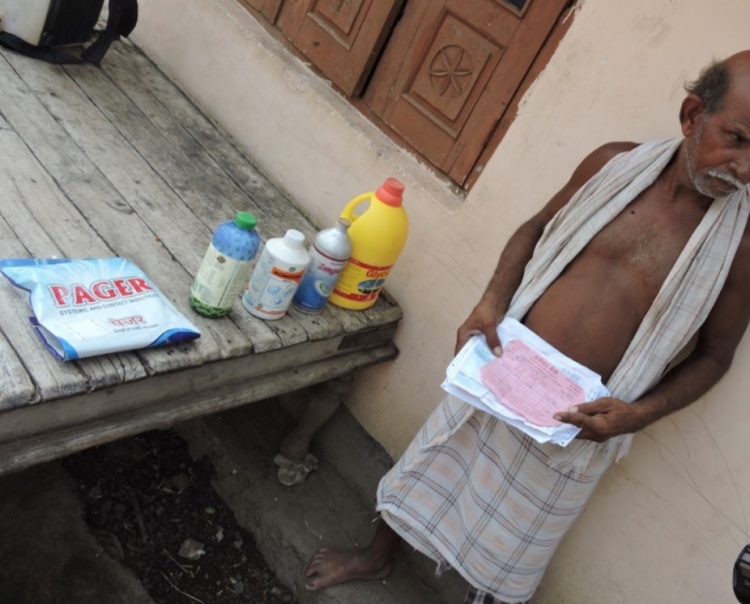The Highly Hazardous Pesticide (HHP) monocrotophos has just been restricted for use in this year’s cropping season in Adilabad District, State of Telangana in India.
Last June 27, the Collector and District Magistrate of Adilabad ordered dealers to refrain from selling the pesticide formulation Monocrotophos SL 35% without a written prescription from local agricultural officials. The order came after it was monitored that monocrotophos “was rampantly being made available to farmers by manufacturers” and was being used in major crops such as soybean, bengalgram, sorghum, sesame, groundnut, and vegetables.
“This order marks progress in local pesticide regulation in India, and is in line with other such local orders in different States. In the absence of comprehensive powers by District authorities to implement the Insecticides Act of 1968, local authorities are nonetheless taking decisive action to protect human health and the environment. Advocacy groups will continue to work to bring about a more accountable pesticide regulation in India,” said Narashima Reddy of Pesticide Action Network (PAN) India.
Monocrotophos, classified highly hazardous (Class Ib) by the World Health Organization (WHO), is banned in 112 countries worldwide, including the United States and European Union. It can cause neurobehavioral problems, growth of breast cancer cells, and endocrine disruption. It is also linked to decreased fertility and birth defects. Monocrotophos is one the “Terrible Twenty” pesticides classified by PAN Asia Pacific (PANAP) as extremely toxic to children.
In 2013, 23 children, aged 4 to 12, were killed in a food poisoning tragedy in the state of Bihar. Forensic examination showed presence of high toxic levels of monocrotophos in the children’s mid-day meal. This was among the cases monitored by PANAP’s Protect Our Children Watch, which registered a total of 1,307 children poisoned by pesticides from January 2013 to February 2018. Monocrotophos was also linked to the poisoning and deaths of cotton farmers in the state of Maharashtra in 2017.
In 2009, the WHO has already recommended India to ban the insecticide. However, the Indian government currently only bans monocrotophos for use in vegetable crops.
The order in Adilabad District restricts the use of monocrotophos not only in vegetables but in other crops as well, including cotton. It pointed out that although monocrotophos is recommended for use in cotton, almost all cotton seeds are already pre-treated with another pesticide (imidacloprid), implying that monocrotophos is no longer needed for the crop.
Through research, awareness and education programmes, PAN India has worked with local authorities for the past three years to develop consensus for action on monocrotophos and other HHPs. Such efforts are part of PANAP’s campaign to Protect Our Children and eliminate HHPs worldwide.
PANAP took the opportunity to call on the Indian government to totally ban monocrotophos. “This is just one example of a HHP that has been banned in developed countries long ago, but remains in use and continues to poison people in many countries in the developing world. This double standard must end. Companies still manufacturing monocrotophos should stop its manufacture and all remaining countries should ban it,” said Sarojeni Rengam, PANAP executive director. ###
Reference: Deeppa Ravindran, PANAP’s Pesticide Programme Coordinator, deeppa.ravindran@panap.net.








Discussion about this post